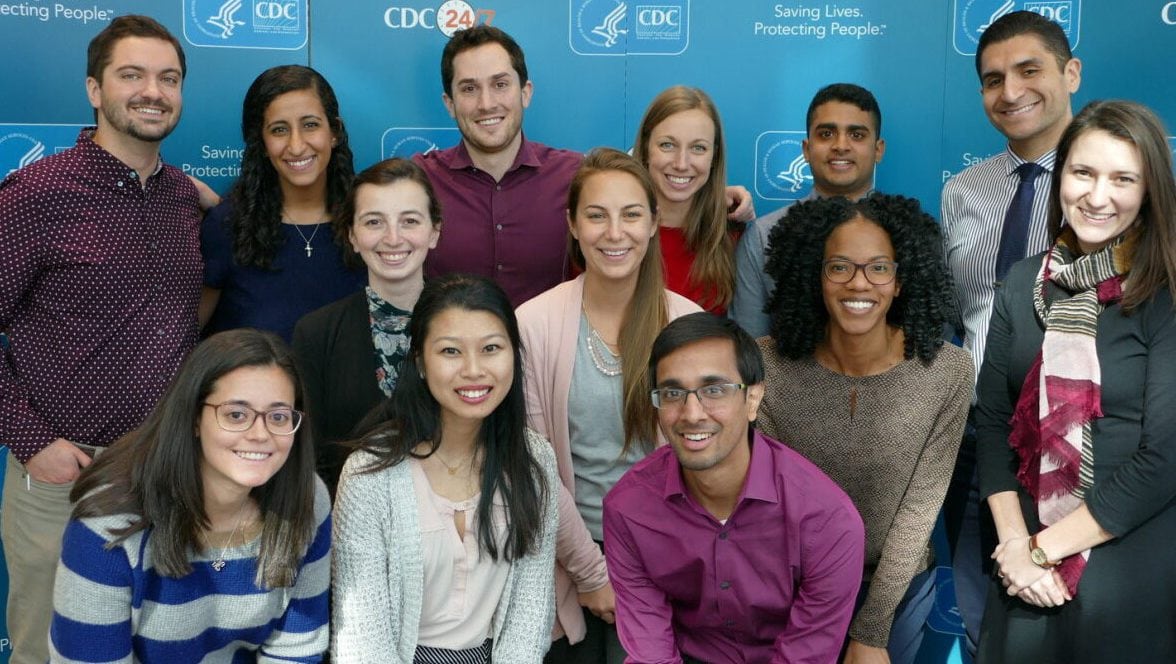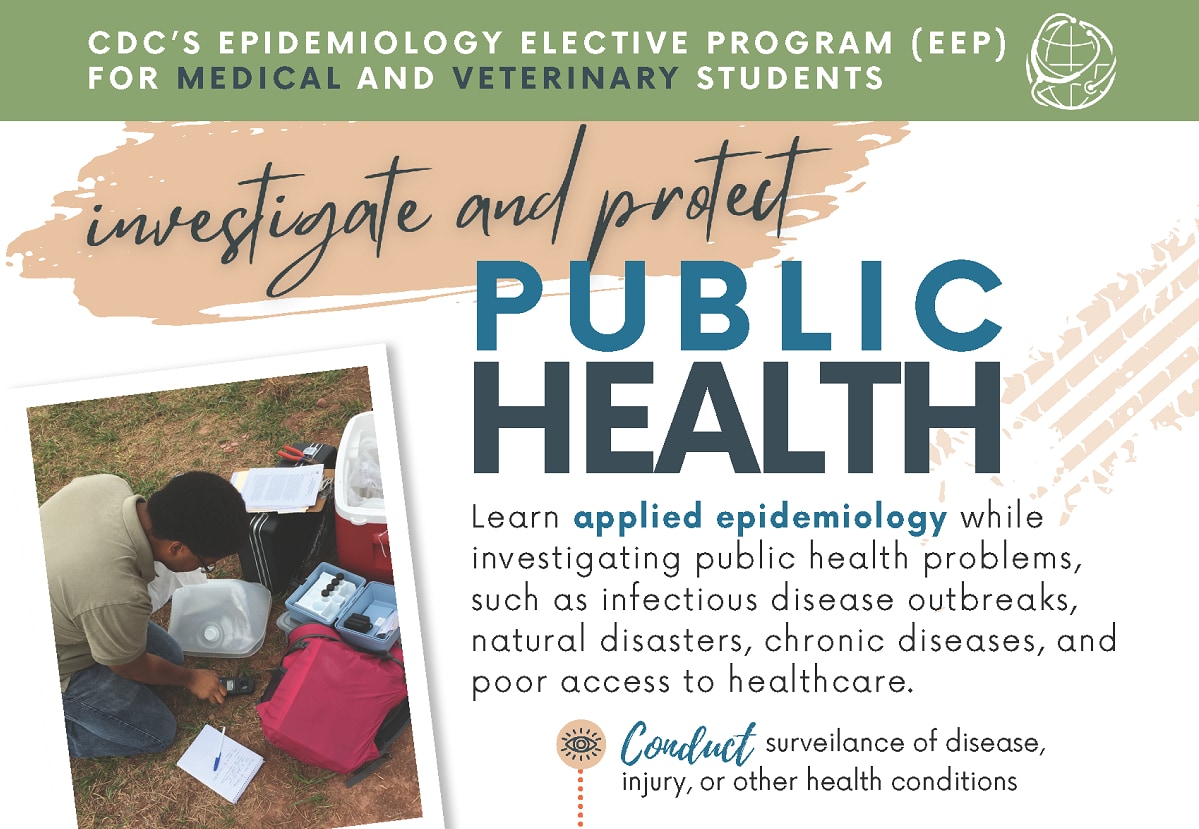At a glance
- The student application period is open through April 21, 2026
- The host site application period is open through May 21, 2026.
- The Epidemiology Elective Program (EEP) is an elective rotation for medical and veterinary students. Most students earn academic course credit.
- EEP offers 6- and 8-week rotations. Students learn applied epidemiology through training, project assignments, and mentorship from public health experts.
- Project assignments are with CDC, other federal agencies, and state, tribal, local, and territorial health departments.
- In 2027, project assignments will primarily be with state, tribal, local, and territorial health departments.

Background
The Epidemiology Elective Program (EEP) is a short-term, service-learning rotation in applied epidemiology. Medical and veterinary students learn through training, project assignments, and mentorship from public health experts.
Students can participate in a 6- or 8-week rotation. Projects assignments are with CDC, other federal agencies, and state, tribal, local, and territorial health departments. Every effort is made to place students with a host site that provides experience in leadership and project in a topic area of the student's interest.
Project assignments involve helping public health experts investigate public health problems such as infectious disease outbreaks, natural disasters, chronic diseases, and poor access to healthcare.
Most schools award academic course credit for participation in EEP.

Impact
More than 2,200 medical and veterinary students have completed EEP since its inception in 1975. Many students go on to participate in CDC's Epidemic Intelligence Service (EIS) program and become public health leaders.
